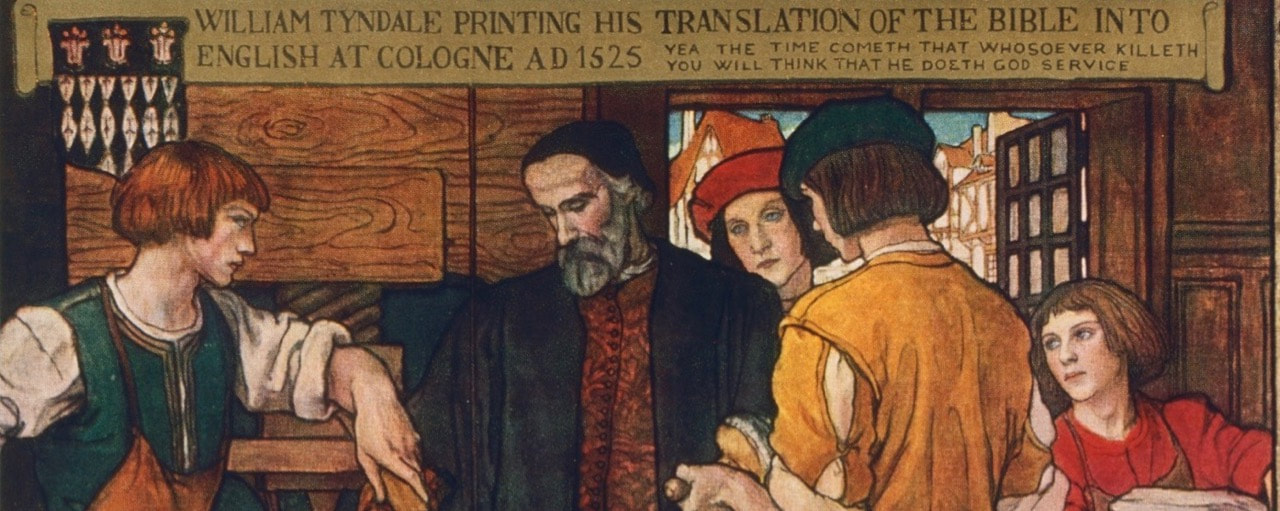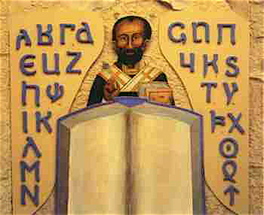The Bible that Did Not Include I & II Kings
|
His name meant “Little Wolf” and his family had been captured by the Goths when they enslaved the entire town and took the inhabitants with them as they went to their next conquest.
Born in 311, Wulfila learned several languages, became an official in the Gothic court, and was sent to Constantinople as part of a diplomatic mission to the Emperor Constantine. He became a bishop there at twenty-nine and then moved to what is now Bulgaria. In 350 Wulfila decided to translate the Bible into Gothic, an unwritten language containing words for only concrete ideas. He first had to invent an alphabet, which he adapted from Greek, but the real challenge was to invent words to communicate the abstract concepts of the Bible. Wulfila’s translation included all the books of the Bible except Kings, which contains stories of battles and military conquests. The Gothic tribes were “fond of war, and were in more need of restraints to check their |
military passions than of spurs to urge them on to deeds of war,” said the historian Philostorgius.
Single handedly Wulfila, missionary and bishop, created the first Germanic written language. But, like most Goths, he was an Arian and believed that Christ was a created being and therefore not fully God. |

